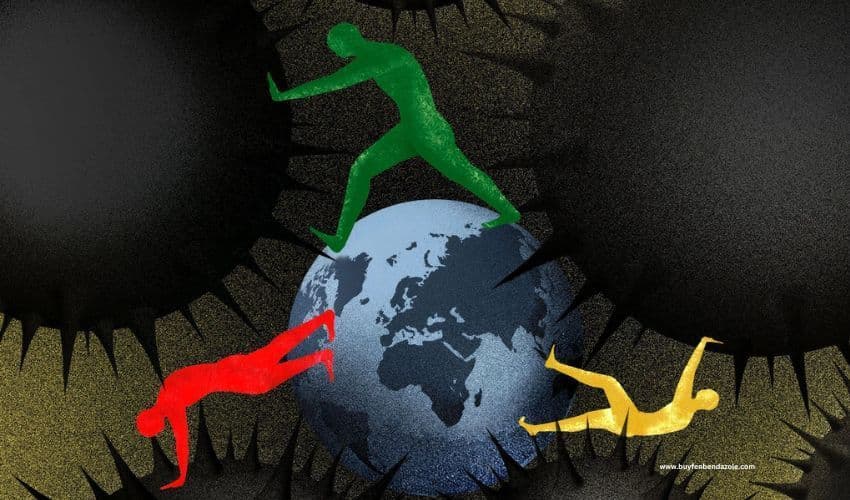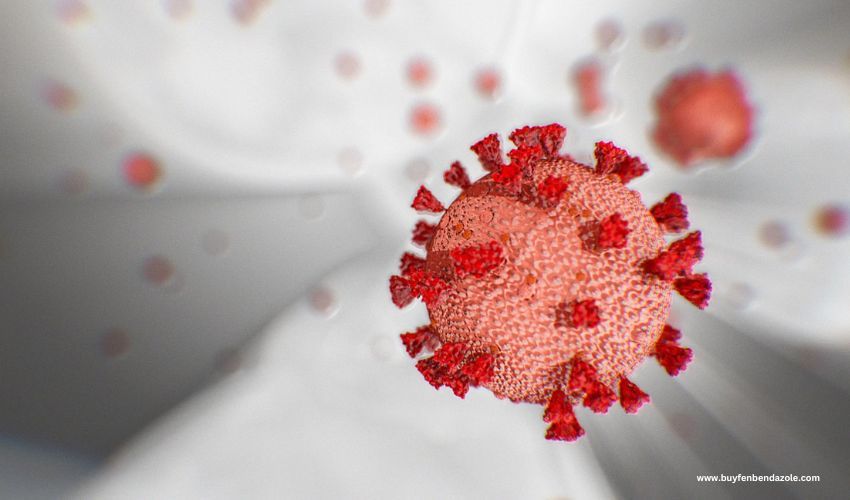
Covid-19 Symptoms: Keep an Eye Out for These New Symptoms

Omicron along with its subvariants specifically BF.7 is believed to be the main cause behind the recent increase in Covid-19 infections in China according to the Centers for Disease Control and Prevention (CDC). The Omicron variations are much more infectious than the Delta variant as well as the original SARS-CoV-2 virus. While the number of cases of Covid-19 in India is decreasing but the constantly evolving varieties make it difficult to recognize the signs and symptoms.
The primary symptoms of coronavirus past included breathing problems or swallowing, loss of taste or smell, as well as high fever. But, according to reports, these symptoms are changing now. Let's look at the latest symptoms of Covid-19 so you're aware and take the necessary precautions.
Ivermectin 12 mg tablet for sale is an FDA-approved drug to treat parasites. It is used to treat parasite-related infections such as roundworms. Additionally, it draws the organisms, making it an excellent antiviral treatment. It is most effective when it is administered in the right doses. It's effective in treating viral g infections like dengue. While higher doses are proven to cause certain side negative effects. Hydroxychloroquine 200 mg for covid is available in three mg doses each. A tablet of Iverheal 12 is believed to provide the most effective results in instances of infections.
Covid-19 Symptoms During The First Wave | Buy Ziverdo Kit
The characteristics of the first Covid-19 wave were distinct from the ones that are now emerging due to the subvariants that have been added.
"It can take between two to fourteen days for previous effects of Covid-19 to show up following exposure. Lightheadedness, fever shortness of breath, dry throat, cough discomfort in the chest, tiredness, and loss of smell and taste are a few symptoms. In many instances, diarrhea and fatigue are as well." Dr. Laxman Jessani Consultant Infectious Disease Expert of Apollo Hospitals Navi Mumbai explained to Health Shots.
The symptoms listed are not exhaustive. The symptoms can differ from children to older adults in severity. symptoms of Covid-19 can range from mild to extreme.
What Are The Latest Covid-19 Signs?
The process of tracking Omicron along with its variations can be complex and overwhelming it is important to be more attentive to the issue. "Among many Covid variants, the Omicron mutant has the highest transmission rates. According to research that has been conducted, this variant has an R0 value of approximately 10-18.6 which means that every person who is infected is at risk of infecting 10-18.6 others in the vicinity as per Dr. Vikrant Shah. He is a consultant doctor, intensivist, and specialist in infectious diseases within the Zen Multispeciality Hospital, Chembur, Mumbai.
In the initial wave of Covid-19, the most common symptoms were the loss of taste and smell as well as a fever that was high and breathlessness. These symptoms of Covid-19 have been altered. Here are the common symptoms of the brand-new Omicron subvariant:
A dry cough with a fever
Respiratory tract infection accompanied by nasal congestion and a runny nose
Sore throat muscles that are uncomfortable
Fatigue
Cough
Husky voice
Sneezing/Headache
Dr. Shah declares, "Omicron and its sub-variants tend to cause lower respiratory issues than earlier variants like Delta that can cause damage to the lung tissue. Constipation, sore throat, and changes in taste or smell could be the symptoms."
What is Myalgia?
Apart from the above myalgia symptoms of Covid-19, it is one of the most prevalent and most frequently reported signs of the disease. The word "myalgia," according to the World Health Organization (WHO) is used to describe the discomfort of muscles and joints. Nearly every patient with Covid-19 has complained about this issue.
Do You Think The Long-Term Effects Of Covid-19 are A Cause For Concern?
"Most patients with coronavirus (Covid-19) start to feel better in a few days, or even weeks later after they begin experiencing symptoms. They recover within 12 weeks. The symptoms of some people may last more time," is Dr. Aniket Mule, consultant in Internal Medicine, Wockhardt Hospitals, Mira Road, Mumbai. This is known by the term Post-Covid-19 syndrome or extended Covid.
The recovery time following a long Covid The recovery time following a long Covid. Some symptoms fade away fast, while others last. In reality, it does not seem to matter the severity of your illness at the time you contract Covid-19 if you'll be suffering from persistent manifestations or not. Even those with mild symptoms are at risk of having persistent problems.
What Happens If Someone Is Not Fully Vaccinated Against Covid-19?
If you haven't received an immunization or suffer from a weak immune system, for instance, those who are elderly or have small children are at greater being at risk of contracting the virus.
Appreciate the creator